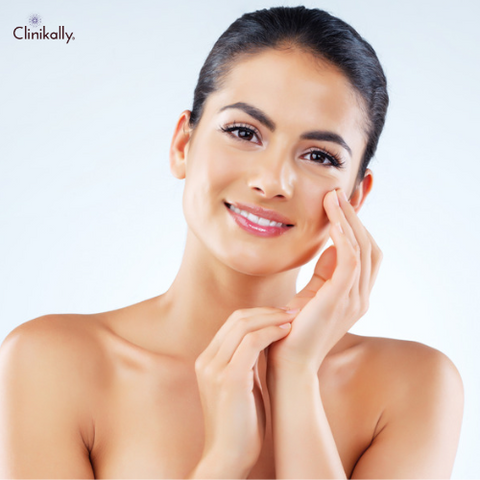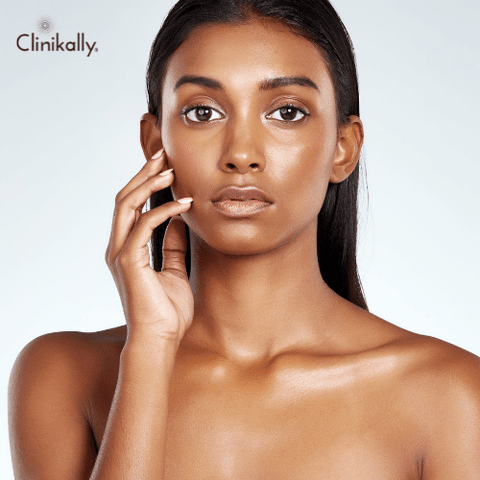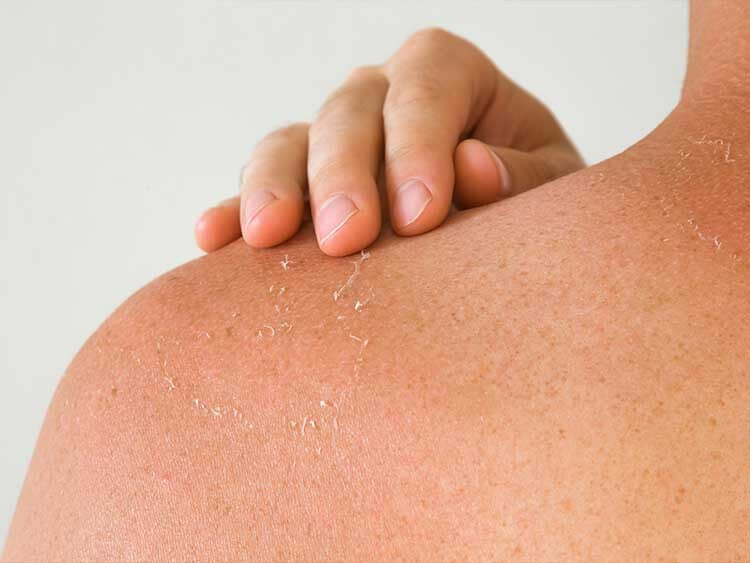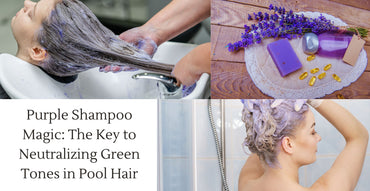While face oils can provide moisturization to the skin, they typically should not replace moisturizer entirely. Here's why:
Moisturizers are designed to provide a mix of water and oil to the skin, which can help to keep the skin hydrated and prevent water loss. On the other hand, face oils are typically pure oils that are designed to provide an extra boost of hydration and nourishment to the skin.
While face oils can be excellent for adding hydration to the skin, they may not provide enough water to keep the skin moisturized on their own. Moisturizers typically contain both humectant and occlusive ingredients that can help to lock in moisture and prevent water loss, which is an essential function for healthy skin.
So, while face oils can be a great addition to your skincare routine, it's generally best to use them in conjunction with a moisturizer rather than as a replacement. This will help to provide your skin with the right balance of hydration and moisture, leading to healthy, glowing skin.
What is Face Oil and How Does it Work?

Face oil is a skincare product that is formulated with a blend of natural oils, such as argan oil, jojoba oil, rosehip oil, or avocado oil. These oils are rich in antioxidants, vitamins, and fatty acids, which can help to nourish and hydrate the skin, leaving it soft and supple.
Face oil works by penetrating deep into the skin's layers, where it can help to balance the skin's natural oils, soothe irritation, and protect against environmental stressors. Oils are lipophilic, which means they are attracted to other oils and can penetrate the skin's lipid barrier. This makes them an excellent option for those with dry or dehydrated skin, as they can help to restore the skin's natural moisture barrier.
Additionally, some face oils contain essential oils or other botanical extracts that can provide additional benefits to the skin. For example, tea tree oil is known for its antibacterial properties, while lavender oil is known for its calming and soothing effects on the skin.
Overall, face oils can be an excellent addition to a skincare routine, particularly for those with dry or dehydrated skin. They can provide long-lasting hydration and nourishment, leaving the skin soft, supple, and glowing. However, it's important to choose a face oil that is appropriate for your skin type and to use it in conjunction with a moisturizer for optimal hydration and protection.
What is a Moisturizer and How Does it Work?

A moisturizer is a skincare product that is designed to hydrate and nourish the skin, helping to maintain its natural moisture balance. Moisturizers typically contain a combination of humectant, emollient, and occlusive ingredients that work together to provide hydration and moisture to the skin.
Humectant ingredients, such as hyaluronic acid or glycerin, work by attracting water to the skin, helping to keep it hydrated. Emollient ingredients, such as shea butter or jojoba oil, help to smooth and soften the skin, reducing the appearance of fine lines and wrinkles. Finally, occlusive ingredients, such as petrolatum or beeswax, help to lock in moisture and prevent water loss, keeping the skin hydrated for longer.
Moisturizers can be applied to the skin after cleansing and toning, and they can be used both day and night. They can be formulated for different skin types, such as oily, combination, or dry, to provide the appropriate level of hydration without causing any irritation or breakouts.
Overall, moisturizers are essential for maintaining healthy, hydrated skin. They work by providing a mix of water and oil to the skin, helping to restore its natural moisture barrier and prevent dryness and dehydration. By choosing a moisturizer that is appropriate for your skin type and using it consistently, you can help to keep your skin looking soft, supple, and youthful.
What's the Difference Between Face Oil and Moisturizer?

The primary difference between face oil and moisturizer is their formulation and how they work to hydrate and nourish the skin.
Face oil is a skincare product that is formulated with a blend of natural oils, such as argan oil, jojoba oil, or rosehip oil. These oils are rich in antioxidants, vitamins, and fatty acids, which can help to nourish and hydrate the skin, leaving it soft and supple. Face oil works by penetrating deep into the skin's layers, where it can help to balance the skin's natural oils, soothe irritation, and protect against environmental stressors.
On the other hand, moisturizer is a skincare product that typically contains a mix of water and oil-based ingredients, along with humectant, emollient, and occlusive ingredients. Moisturizers work by providing hydration and moisture to the skin, helping to restore its natural moisture barrier and prevent dryness and dehydration.
While face oil and moisturizer can both help to hydrate and nourish the skin, they have different formulations and can be used for different skin types and concerns. For example, face oil is often used for those with dry or dehydrated skin, while moisturizer can be used for a range of skin types, including oily or combination skin. Additionally, face oil can be used on its own or in conjunction with a moisturizer, while moisturizer is typically used as the last step in a skincare routine.
In summary, face oil and moisturizer are both excellent skincare products that can provide hydration and nourishment to the skin. However, they have different formulations and can be used for different skin types and concerns, making it important to choose the product that is appropriate for your skin's unique needs.
Why Hydration is Essential for Healthy Skin
Hydration is essential for healthy skin because it plays a crucial role in maintaining the skin's natural moisture barrier. The skin is the body's largest organ and acts as a protective barrier against the external environment. It is exposed to various factors that can cause dehydration, such as UV rays, harsh weather conditions, and pollution, among others.
When the skin becomes dehydrated, it can become dry, flaky, and irritated. Dehydration can also lead to the breakdown of the skin's natural moisture barrier, which can result in increased sensitivity, inflammation, and premature aging.
Hydration is necessary to maintain the skin's natural moisture barrier and protect against dehydration. Hydrated skin looks plump, smooth, and youthful, while dehydrated skin can look dull, dry, and aged.
Drinking enough water is one way to maintain hydration, but it's also important to use skincare products that provide hydration and moisture to the skin. This can include products such as moisturizers, face oils, and hydrating serums, which can help to replenish the skin's moisture levels and protect against dehydration.
Overall, hydration is essential for healthy skin. It helps to maintain the skin's natural moisture barrier, protect against dehydration, and keep the skin looking plump, smooth, and youthful.
Understanding Your Skin Type and Its Unique Needs
Understanding your skin type is essential for identifying its unique needs and choosing the right skincare products to address them. There are five common skin types:
-
Normal skin: This skin type is well-balanced, with a healthy moisture barrier and few visible imperfections.
-
Dry skin: Dry skin feels tight, rough, or flaky, and may be prone to sensitivity and itchiness. It often appears dull and can develop fine lines and wrinkles more easily.
-
Oily skin: Oily skin produces excess sebum, giving it a shiny or greasy appearance. It is often prone to acne, blackheads, and enlarged pores.
-
Combination skin: Combination skin is a mix of oily and dry areas. Typically, the T-zone (forehead, nose, and chin) is oily, while the cheeks are dry.
-
Sensitive skin: Sensitive skin is prone to redness, irritation, and inflammation. It may react negatively to certain skincare products, environmental factors, or stress.
Once you have identified your skin type, you can choose skincare products that are specifically designed to address its unique needs. For example, oily skin may benefit from a lightweight, oil-free moisturizer that helps to control sebum production, while dry skin may benefit from a richer, more emollient moisturizer that helps to replenish lost moisture.
It's also important to consider any specific skin concerns you may have, such as hyperpigmentation, acne, or aging. Look for products that target these concerns, such as serums or treatments that contain ingredients like vitamin C, retinol, or salicylic acid.
In summary, understanding your skin type and its unique needs is essential for developing a personalized skincare routine that effectively addresses your concerns and helps you achieve healthy, glowing skin. By choosing products that are specifically designed for your skin type and concerns, you can help to maintain a healthy moisture barrier, reduce the appearance of imperfections, and promote a more youthful, radiant complexion.
Nourishing Your Skin with Natural Oils
Natural oils are a great way to nourish your skin and provide it with the essential fatty acids, vitamins, and antioxidants it needs to maintain a healthy, youthful appearance. Here are some of the most popular natural oils and their benefits:
-
Jojoba oil: Jojoba oil is a lightweight, non-greasy oil that closely mimics the skin's natural oils. It is easily absorbed and helps to balance the skin's moisture levels, making it ideal for all skin types.
-
Rosehip oil: Rosehip oil is a rich source of vitamin C, which helps to brighten the skin and reduce the appearance of hyperpigmentation. It also contains antioxidants that help to protect against environmental stressors and reduce inflammation.
-
Argan oil: Argan oil is a deeply nourishing oil that is rich in vitamin E, fatty acids, and antioxidants. It helps to hydrate and soften the skin, while also reducing the appearance of fine lines and wrinkles.
-
Coconut oil: Coconut oil is a versatile oil that can be used for both skin and hair. It is deeply moisturizing and helps to soothe dry, irritated skin. It also contains lauric acid, which has antimicrobial properties that can help to prevent acne and other skin infections.
-
Almond oil: Almond oil is rich in vitamin E and fatty acids, making it a great choice for nourishing and hydrating dry, sensitive skin. It is also non-comedogenic, meaning it won't clog pores or cause breakouts.
When using natural oils on your skin, it's important to choose high-quality, cold-pressed oils that are free from additives or synthetic fragrances. You can use these oils alone or as part of a skincare routine that includes cleanser, toner, and moisturizer. Simply apply a small amount of oil to clean, damp skin and massage it in using circular motions.
In summary, natural oils are a great way to nourish and hydrate your skin, providing it with the essential nutrients it needs to maintain a healthy, youthful appearance. With so many different oils to choose from, you can easily find one that is suitable for your skin type and concerns.
Anti-Aging Benefits of Face Oils and Moisturizers
Both face oils and moisturizers offer a range of anti-aging benefits that can help to keep your skin looking youthful and radiant. Here are some of the key benefits:
-
Hydration: As we age, our skin naturally loses moisture, which can lead to dryness, fine lines, and wrinkles. Both face oils and moisturizers help to hydrate the skin, improving its overall texture and minimizing the appearance of wrinkles.
-
Nourishment: Face oils and moisturizers are rich in vitamins, antioxidants, and other essential nutrients that help to nourish and protect the skin. This can help to prevent signs of aging, such as age spots, uneven texture, and dullness.
-
Collagen production: Collagen is a protein that is essential for maintaining firm, smooth skin. Both face oils and moisturizers can help to stimulate collagen production, helping to improve skin elasticity and reduce the appearance of fine lines and wrinkles.
-
Protection: Environmental stressors such as pollution, UV rays, and free radicals can all contribute to premature aging of the skin. Face oils and moisturizers containing antioxidants, such as vitamins C and E, help to protect the skin from these damaging factors.
-
Brightening: Face oils and moisturizers can help to brighten the skin by reducing the appearance of dark spots and hyperpigmentation. This can help to give your skin a more youthful, even-toned appearance.
When it comes to choosing a face oil or moisturizer for anti-aging benefits, look for products that contain ingredients like retinol, hyaluronic acid, peptides, and plant-based oils such as rosehip oil or argan oil. These ingredients have been shown to have anti-aging properties and can help to improve the overall appearance of the skin.
In summary, both face oils and moisturizers offer a range of anti-aging benefits that can help to keep your skin looking youthful and radiant. By choosing products that contain nourishing and protective ingredients, you can help to prevent signs of aging and maintain a healthy, youthful complexion.
Targeting Dry Skin with Essential Fatty Acids
Essential fatty acids (EFAs) are important nutrients that are essential for maintaining healthy skin. They help to keep the skin hydrated and supple by reducing water loss and improving the skin's natural barrier function. If you have dry skin, adding EFAs to your diet can be an effective way to improve your skin's health and appearance.
There are two main types of EFAs: omega-3 and omega-6. Omega-3 fatty acids, found in fatty fish, nuts, and seeds, are known for their anti-inflammatory properties and ability to improve skin elasticity. Omega-6 fatty acids, found in vegetable oils, nuts, and seeds, help to strengthen the skin barrier and maintain hydration levels.
Here are some tips for targeting dry skin with essential fatty acids:
-
Eat more fatty fish: Fatty fish such as salmon, tuna, and sardines are rich sources of omega-3 fatty acids. Eating these types of fish regularly can help to improve your skin's hydration levels and reduce inflammation.
-
Incorporate nuts and seeds into your diet: Nuts and seeds such as walnuts, flaxseeds, and chia seeds are also rich in omega-3 fatty acids. Adding these to your diet can help to improve your skin's natural barrier function and keep it hydrated.
-
Use oils rich in essential fatty acids: Oils such as argan oil, jojoba oil, and evening primrose oil are all rich in essential fatty acids. These oils can be applied directly to the skin or added to your skincare products to help hydrate and nourish dry skin.
-
Consider taking supplements: If you're not able to get enough EFAs through your diet, you may want to consider taking supplements. Omega-3 supplements such as fish oil or krill oil can help to improve skin hydration and reduce inflammation.
Remember, it's important to consult with your healthcare provider before adding supplements to your diet, especially if you have any underlying health conditions or are taking medications.
Achieving a Glowing, Radiant Complexion
Achieving a glowing, radiant complexion is a goal for many people, and there are several steps you can take to improve the appearance of your skin. Here are some tips for achieving a glowing complexion:
-
Consistent Skincare Routine: A consistent skincare routine that includes cleansing, moisturizing, and protecting your skin from the sun is essential for a healthy, radiant complexion. Choose skincare products that are appropriate for your skin type and address any specific concerns you may have, such as dryness or acne.
-
Exfoliation: Exfoliating your skin can help to remove dead skin cells and promote cell turnover, resulting in a brighter, smoother complexion. Use a gentle exfoliant 1-2 times per week to avoid over-exfoliating, which can cause irritation and inflammation.
-
Hydration: Keeping your skin well-hydrated is crucial for a healthy, radiant complexion. Drink plenty of water throughout the day and use a moisturizer to keep your skin hydrated and plump.
-
Nutrition: A healthy diet that is rich in antioxidants, vitamins, and minerals can support healthy skin and promote a glowing complexion. Eat plenty of fruits and vegetables, lean protein, and healthy fats to nourish your skin from the inside out.
-
Sun Protection: Protecting your skin from the sun is essential for preventing damage and maintaining a youthful, radiant complexion. Use a broad-spectrum sunscreen with an SPF of at least 30, and reapply every 2 hours when spending time outdoors.
-
Professional Treatments: Professional treatments such as chemical peels, microdermabrasion, and laser therapy can help to improve the appearance of your skin and promote a radiant complexion. Consult with a dermatologist or aesthetician to determine which treatments are best for your individual needs.
Overall, achieving a glowing, radiant complexion requires a combination of consistent skincare, healthy habits, and professional treatments. With the right approach, you can achieve a beautiful, healthy-looking complexion that makes you feel confident and radiant.
Incorporating Face Oil and Moisturizer into Your Daily Facial Routine

Incorporating face oil and moisturizer into your daily facial routine can help keep your skin hydrated, nourished, and glowing. Here's how you can add these products to your daily routine:
-
Cleanse: Start by cleansing your face with a gentle cleanser that is appropriate for your skin type. Use lukewarm water to avoid stripping your skin of its natural oils.
-
Tone: After cleansing, use a toner to help restore your skin's pH balance and prepare it for the next steps in your skincare routine.
-
Apply Face Oil: After toning, apply a few drops of face oil to your skin. Face oils can help hydrate and nourish your skin, and they can be especially beneficial for dry or mature skin. Gently massage the oil into your skin using circular motions, focusing on any dry or rough areas.
-
Apply Moisturizer: Next, apply a moisturizer to seal in the hydration from the face oil and provide additional nourishment for your skin. Choose a moisturizer that is appropriate for your skin type and concerns, and gently massage it into your skin using upward motions.
-
Sun Protection: If you'll be spending time outdoors, apply a broad-spectrum sunscreen with an SPF of at least 30 to protect your skin from the sun's harmful rays.
It's important to note that everyone's skin is different, so it may take some trial and error to find the right face oil and moisturizer for your individual needs. Also, if you have oily or acne-prone skin, you may want to use lighter-weight products that won't clog your pores. Consult with a dermatologist or aesthetician if you have concerns about your skincare routine or product choices.
Choosing the Right Skincare Products for Your Skin

Choosing the right skincare products for your skin can be challenging, but there are several factors to consider when making your selections. Here are some tips to help you choose the right skincare products for your skin:
-
Know Your Skin Type: Knowing your skin type is essential when choosing skincare products. There are five primary skin types: normal, dry, oily, combination, and sensitive. Each skin type requires different skincare products to address its unique needs.
-
Identify Your Skin Concerns: Once you know your skin type, identify any specific concerns you may have, such as acne, fine lines, or hyperpigmentation. Look for skincare products that are formulated to address these concerns.
-
Read Labels: When choosing skincare products, read the labels carefully to understand the ingredients and their concentrations. Avoid products that contain potentially harmful ingredients like sulfates, parabens, and synthetic fragrances.
-
Test Before You Buy: It's always a good idea to test skincare products before you buy them, especially if you have sensitive skin. Test a small amount of the product on your inner wrist or behind your ear and wait 24 hours to see if you experience any adverse reactions.
-
Consider Your Budget: Skincare products can range in price from a few dollars to hundreds of dollars. Consider your budget and choose products that fit within your price range.
-
Consult with a Professional: If you're unsure which skincare products are right for you, consider consulting with a dermatologist or aesthetician. They can evaluate your skin type and concerns and recommend products that will work best for your individual needs.
Overall, choosing the right skincare products for your skin requires careful consideration and research. By understanding your skin type, identifying your skin concerns, and reading labels carefully, you can find products that will help you achieve healthy, beautiful skin.
Maximizing Absorption for Optimal Results
Maximizing absorption of skincare products can help you achieve optimal results and get the most out of your skincare routine. Here are some tips to help you maximize absorption:
-
Cleanse Thoroughly: Cleanse your skin thoroughly before applying any skincare products. This will remove any dirt, oil, and impurities that can interfere with product absorption.
-
Exfoliate Regularly: Exfoliating your skin can help remove dead skin cells and unclog pores, which can improve product absorption. Use a gentle exfoliator once or twice a week, depending on your skin type.
-
Apply Products in the Correct Order: Apply skincare products in the correct order to maximize absorption. Start with the lightest products first, such as toners and serums, and work your way up to heavier creams and oils.
-
Use the Right Amount of Product: Using too much product can actually reduce absorption. Use only the recommended amount of product for your skin type and concerns.
-
Warm Up Products: Warming up skincare products between your palms before applying can help improve absorption. This is especially true for thicker creams and oils.
-
Pat or Massage Products In: Pat or massage products into your skin using upward motions. This can help increase circulation and improve product absorption.
-
Give Products Time to Absorb: Allow skincare products to absorb fully before applying makeup or other products. This can take a few minutes, so be patient.
By following these tips, you can help maximize absorption of your skincare products and achieve optimal results. Remember to be consistent with your skincare routine and listen to your skin's needs to maintain healthy, beautiful skin.
Using Face Oil as Part of Your Night-time Routine
Using face oil as part of your night-time routine can provide numerous benefits for your skin. Here are some tips for incorporating face oil into your night-time routine:
-
Start with Cleansed Skin: Begin your night-time routine by cleansing your face to remove any dirt, oil, or makeup. This will help ensure that the face oil can penetrate your skin effectively.
-
Apply Your Regular Skincare Products: After cleansing, apply any regular skincare products you use, such as toner or serum. Allow these products to absorb fully before moving on to the face oil.
-
Choose the Right Face Oil: Look for a face oil that is suited to your skin type and concerns. For example, if you have dry skin, you may want to choose a face oil that contains nourishing ingredients like argan oil or avocado oil.
-
Warm Up the Face Oil: Warm up a few drops of the face oil between your palms before applying it to your face. This will help improve absorption.
-
Apply the Face Oil: Gently massage the face oil into your skin using upward motions. Be sure to cover your entire face and neck.
-
Let the Face Oil Absorb: Allow the face oil to absorb fully before going to bed. You may want to wait a few minutes before applying any other products, such as eye cream or lip balm.
By incorporating face oil into your night-time routine, you can help nourish and hydrate your skin while you sleep. Remember to choose a face oil that is suited to your skin type and concerns, and be consistent with your skincare routine to maintain healthy, glowing skin.
The Verdict: Can Face Oil Replace Moisturizer?

Whether or not face oil can replace moisturizer depends on your skin type and individual needs. While face oil and moisturizer both provide hydration to the skin, they work in slightly different ways.
Moisturizers typically contain a mixture of humectants, occlusives, and emollients that work together to help keep skin hydrated, plump, and protected. They often provide a more lightweight, non-greasy feel that is easily absorbed by the skin.
Face oils, on the other hand, are more concentrated and often contain a higher concentration of nourishing ingredients that can help improve the overall health and appearance of the skin. They may also provide a more natural, dewy finish to the skin, and can be particularly beneficial for those with dry or mature skin.
In some cases, face oil can be used in place of moisturizer, particularly for those with dry or mature skin. However, those with oily or acne-prone skin may find that using face oil alone can lead to clogged pores and breakouts. In these cases, it may be best to use a lighter-weight moisturizer or to use the face oil in combination with a moisturizer.
Ultimately, the decision of whether or not to use face oil in place of moisturizer depends on your individual skin type and needs. If you're unsure, it may be helpful to consult with a dermatologist or skincare professional to determine the best routine for your skin.















